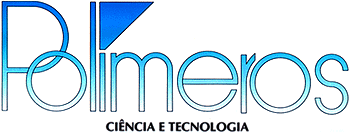30 years In Nov/2021, Polímeros journal completes three decades disseminating scientific knowledge in the polymer area! During this period, it passed through different moments, in the beginning it was the learning how to manage a scientific publication, then being accepted by the community interested in the “Plastic World”, following the insecurity of opening up to the world by publishing only in English, and quite recently finding itself forced to apply the Publication Article Charge PAC, in order to survive. These have been just some of the enormous challenges the journal had to face during its first 30 years. But all in all, the result has been positive, justified by the gradual and constant increase in its impact factor, the last one an impressive ~50% increase to 1.492 (2020). This was only possible thanks to the generous contribution of all, authors, reviewers, members of the Editorial Council and Committee, collaborators, and the entire “Polymer Community”, to which we sincerely thank.
But the world paces in continuous evolution, new challenges present themselves, now with the inevitable implementation of the “Open Science”[11 PLOS. Retrieved in 2021, December 22, from https://plos.org/
https://plos.org/...
,22 SciELO. Retrieved in 2021, December 22, from https://scielo.org/en/
https://scielo.org/en/...
], when the journal again finds itself face to face with the new rules of scientific dissemination, generating doubts on how well to disseminate them to authors and reviewers, and gradually implement them. Another huge challenge is to find scientifically and economically viable ways to recycle and reuse discarded plastic products, especially films and bottles, which ends up in the ocean as microplastics[33 Isobe, A., Iwasaki, S., Uchida, K., & Tokai, T. (2019). Abundance of non-conservative microplastics in the upper ocean from 1957 to 2066. Nature Communications, 10(1), 417. http://dx.doi.org/10.1038/s41467-019-08316-9. PMid:30679437.
http://dx.doi.org/10.1038/s41467-019-083...
], consequence of the eager seek of the world’s population to increase their well-being, direct result of their enrichment.
Let 2022 be not just the beginning of a new year, but the beginning of a new decade for Polímeros, full of goals to be achieved, challenges to be overcome, and above all, to remain a reliable and scientifically sound source of open access polymer information to everyone.
-
How to cite: Canevarolo, S. V. (2021). Three Decades Sharing Polymer Science. Polímeros: Ciência e Tecnologia, 31(3), e2021037. https://doi.org/10.1590/0104-1428.ED3103
References
-
1PLOS. Retrieved in 2021, December 22, from https://plos.org/
» https://plos.org/ -
2SciELO Retrieved in 2021, December 22, from https://scielo.org/en/
» https://scielo.org/en/ -
3Isobe, A., Iwasaki, S., Uchida, K., & Tokai, T. (2019). Abundance of non-conservative microplastics in the upper ocean from 1957 to 2066. Nature Communications, 10(1), 417. http://dx.doi.org/10.1038/s41467-019-08316-9 PMid:30679437.
» http://dx.doi.org/10.1038/s41467-019-08316-9
Publication Dates
-
Publication in this collection
18 Feb 2022 -
Date of issue
2021

